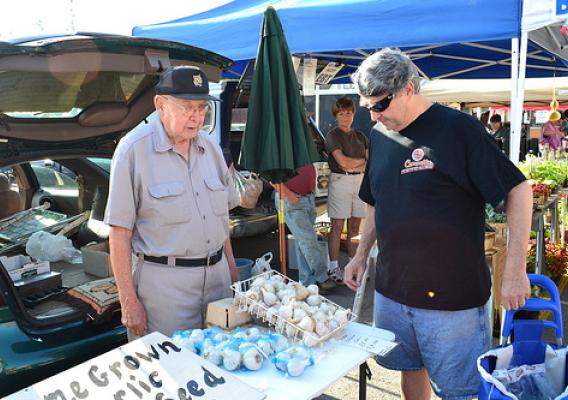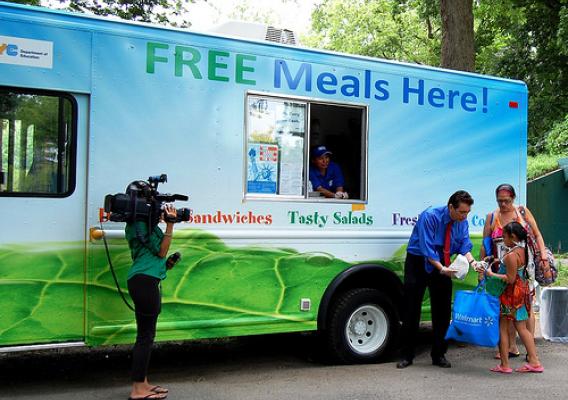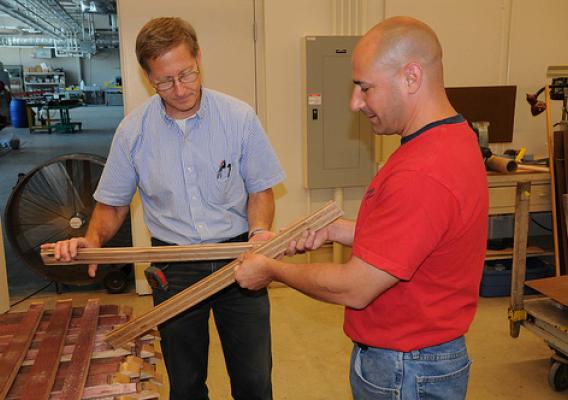This post is part of the Science Tuesday feature series on the USDA blog. Check back each week as we showcase stories and news from USDA’s rich science and research portfolio.
Fresh corn and homegrown tomatoes are as much a part of the traditional American scene as apple pie. Scientists with USDA’s Agricultural Research Service (ARS) have applied cutting-edge technology to learn more about these longtime favorites and, in the long run, make them even better.
As part of an international consortium of 300 researchers, ARS scientists recently sequenced the genome of the domesticated tomato. This achievement is expected to lower production costs and speed up efforts to improve the United States’ $2 billion tomato crop, making the plant better equipped to combat the pests, pathogens, drought and diseases that now plague growers. That’s good news for tomato fans, because since 2000, Americans have been consuming an average of 19 pounds of tomatoes per person every year.







